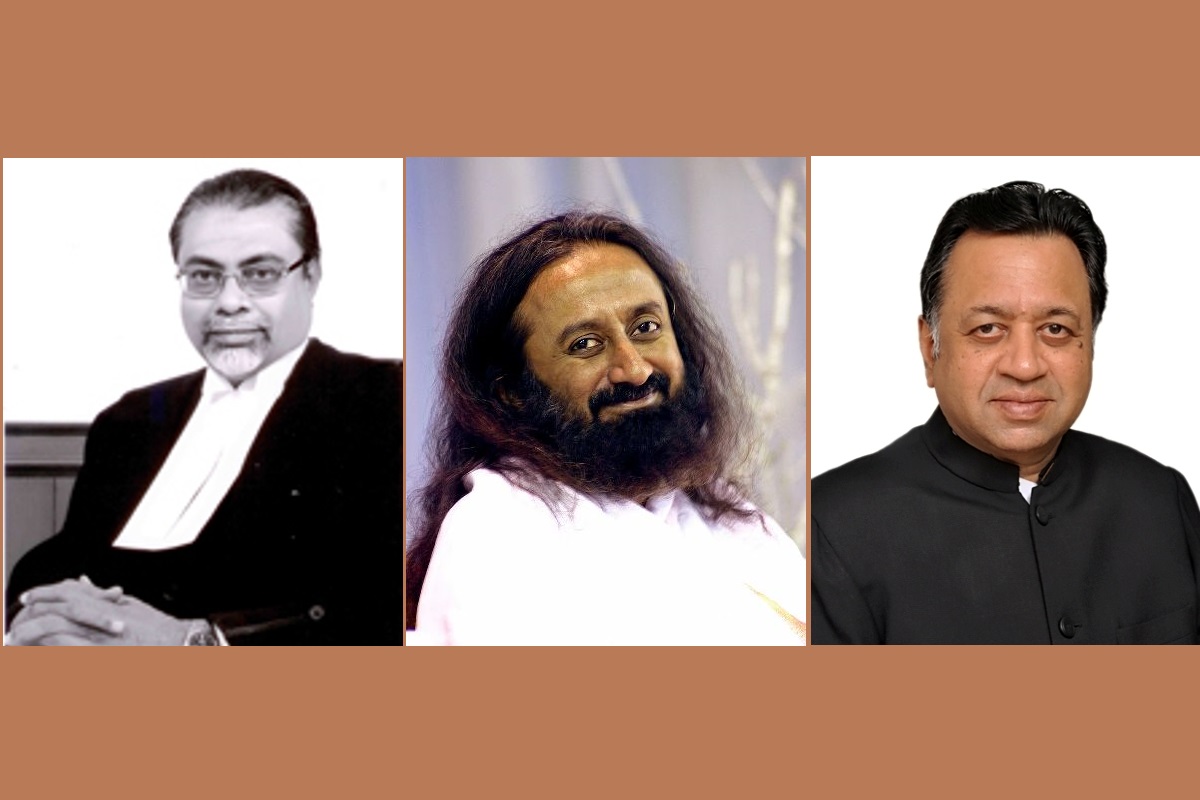India’s Got Latent: SC issues notice on YouTuber Ashish Chanchlani’s plea against FIRs
SC issues notice on YouTuber Ashish Chanchlani’s plea to quash or transfer FIR in India’s Got Latent case; tagged with Ranveer Allahabadia’s petition.
A five-judge constitution bench of the Supreme Court headed by Chief Justice of India Ranjan Gogoi appointed Justice FM Kaliifullah (Retd), spiritual guru Sri Sri Ravi Shankar and senior advocate Sriram Panchu as the mediators for the Ayodhya title suit case.

The three mediators as appointed by Supreme Court. From left to right: Justice (Retd) Kalifulla, Sri Sri Ravi Shankar and Sriram Panchu. [Photos (from L to R): Supreme Court/Wikimedia Commons/srirampanchumediation.com)
In a major decision on Friday, the Supreme Court appointed three mediators for a “permanent solution” to the Ram Janmabhoomi-Babri Masjid land dispute case.
A five-judge constitution bench of the Supreme Court headed by Chief Justice of India Ranjan Gogoi appointed Justice FM Kalifullah (Retd), spiritual guru Sri Sri Ravi Shankar and senior advocate Sriram Panchu as the mediators for the Ayodhya title suit case.
Advertisement
The panel will be headed by Justice Kalifullah and will have to submit a status report within four weeks and complete proceedings within eight weeks. It is interesting to note that the timeline coincides with the Lok Sabha elections to be held this year.
Advertisement
So who are the three mediators? Here is a quick look.
Justice Fakkir Mohammed Kalifulla (Retd)
Justice Kalifulla, the son of Late Justice M Fakkir Mohamed, was the Chief Justice of the High Court of Jammu and Kashmir from 24 February 2011 to 2 April 2012. He was on 2 April 2012 elevated to the Supreme Court as a judge after a Collegium of judges nominated him for the post. He was sworn in by the then CJI SH Kapadia.
Before retiring on 22 July 2016, Justice Kalifulla delivered a landmark judgment for carrying out reforms in the Board of Control for Cricket in India (BCCI). At the time of his retirement, Justice Kalifulla’s judgement in the BCCI case was praised by the then CJI TS Thakur.
Justice Kalifulla, 68, began his career as a lawyer in Chennai. He went on to become a judge of the Madras High Court in 2000.
Reacting to the news of his appointment by the top court, Justice Kalifulla said, “I understand SC has appointed a mediation committee headed by me. I’m yet to receive a copy of the order. I can say if committee has been constituted we’ll take every effort to resolve the issue amicably.”
Sriram Panchu
Founder of The Mediation Chambers, the 69-year-old Sriram Panchu has been called “one of the foremost mediators in the country”. Panchu is a senior advocate based in Chennai and is the president of the Association of Indian Mediators and a director on the board of the International Mediation Institute (IMI).
In 2010, he was one of the mediators appointed by the Supreme Court to mediate a 50-year-old boundary dispute between the states of Assam and Nagaland. Panchu has been praised unanimously for his work in making mediation a part of India’s legal system.
Sri Sri Ravi Shankar
The 62-year-old founder of The Art of Living is one of India’s most renowned spiritual gurus. Ravi Shankar had been calling for an out of court settlement of the dispute. In 2018, he had attempted to bring both Hindu and Muslim leaders on the same table to discuss a way to solve the long-running dispute.
He had then controversially suggested that Muslims should give up their claims on the disputed site.
“Because it’s Lord Ram’s birthplace, there is such a strong feeling connected with the place. And since it is not that important place for Muslims and (is) also in a place where there is conflict, namaaz is not acceptable. Anyway, it is not going to serve the purpose; and when it is not serving the purpose of the other community (Muslims), then, it should be gifted,” he told IANS in an interview.
“I just heard of this news, I think this will be good for the country, mediation is the only way,” Ravi Shankar told reporters following his appointment.
Earlier today the spiritual guru posted a tweet calling all to move together towards a better future.
“Respecting everyone, turning dreams to reality, ending long-standing conflicts happily and maintaining harmony in society – we must all move together towards these goals,” he said.
Respecting everyone, turning dreams to reality, ending long-standing conflicts happily and maintaining harmony in society – we must all move together towards these goals.#ayodhyamediation
— Sri Sri Ravi Shankar (@SriSri) March 8, 2019
The mediation proceedings will be held in-camera in Faizabad. The Supreme Court in its order banned the reporting of the mediation proceedings.
Saying that the court has no control over what happened in the past, it asserted that the court was only concerned about resolving the present dispute.
The five-judge bench comprised Justice SA Bobde, Justice DY Chandrachud, Justice Ashok Bhushan and Justice SA Nazeer. The bench had earlier asked the contesting parties to explore the possibility of amicably settling the decades-old dispute through mediation, saying it might help in “healing relations”.
Advertisement